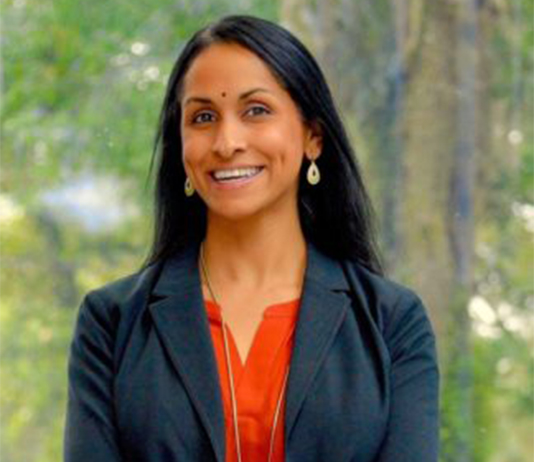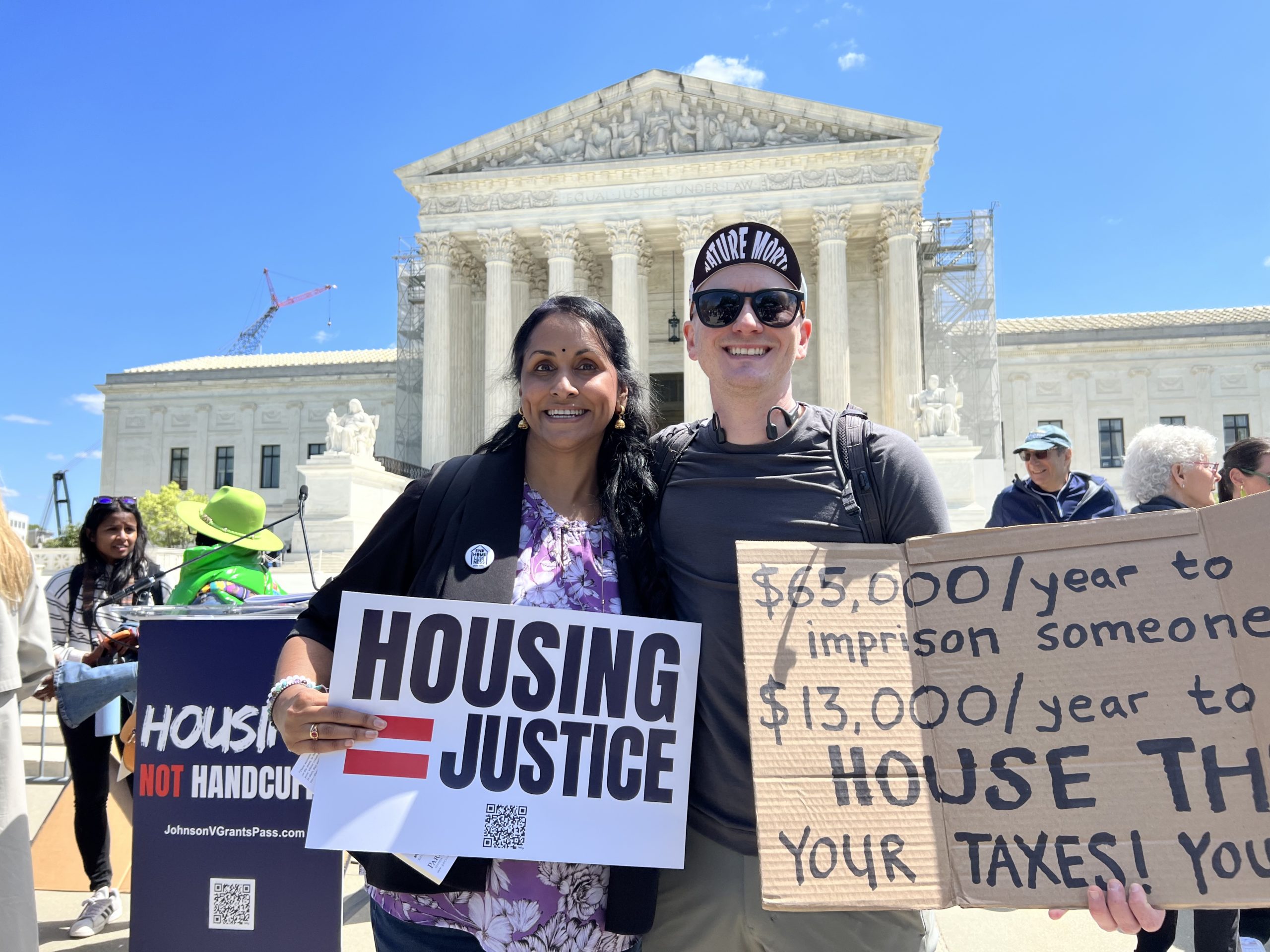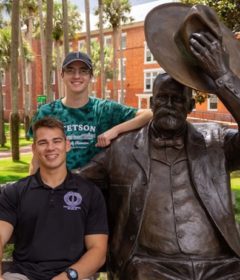Ending Poverty and Homelessness Conference is back Friday, May 3


The tenth Ending Poverty and Homelessness Conference (EPHC) will take place Friday, May 3, from 7:30 a.m. to 3:30 p.m. in Room 230 at the Carlton Union Building at Stetson University.
The national conference is a grassroots movement founded by Rajni Shankar-Brown, PhD, — professor at Stetson, Jessie Ball duPont chair of Social Justice Education and, President of the National Coalition for the Homeless Board — in 2013.
The EPHC is a collaborative effort between Stetson University, the National Organization for Women (NOW), the National Coalition for the Homeless (NCH), Bring America Home Now (BAHN), the Center for Sustainable Communities (CSC), the Florida Education Association (FEA) and Volusia County Schools (VCS).

Over the years, the conference has continued to expand with intention and impact.
“The EPHC is a call to action,” Shankar-Brown said while expressing deep gratitude to all who have supported the conference over the past decade.
This year, the EPHC will bring hundreds of educators — Pre-K, K-12 and University — students, counselors, social workers, environmental experts, policy makers, legal experts, researchers, interfaith leaders, nonprofits, activists, artists, and more to be in beloved community. They also will have a chance to dialogue on housing justice, to organize and, to work together to create social change that strategically helps in promoting human and civil rights. Attendees will have a chance to “build healthier, more loving, more equitable and just communities and schools” that can benefit everyone.
Since its inception, the EPHC has forged pathways for building food, hygiene and school supply pantries, mentoring programs, family resource centers, advocating for essential wrap-around services, and much more. The conference has also helped organize and mobilize for strategic and direct actions, as well as lift inclusive public policies and support needed measures for affordable housing including supporting adaptive reuse, or repurposing old and abandoned buildings into safe, decent, affordable, accessible and sustainable housing.
This year’s theme is “We the People: Inclusive Educational Excellence and Housing Justice.”

The 2024 EPHC keynote speaker is Dardi Hendershott, co-founder of Hope 4 The Wounded, LLC, and co-author of Supporting the Wounded Educator: A Trauma-Sensitive Approach to Self-Care, book she wrote in tandem with her husband, Joe Hendershott.
“I wanted to provide framing of wellbeing for all of us doing this work and for the communities we work to support,” Shankar-Brown said. “Dardi — a certified health and wellness coach, a trained and formerly licensed therapeutic foster and adoptive parent — is a huge advocate for professionals seeking to find balance in their lives.”
To learn more about EPHC, visit Ending Poverty and Homelessness Conference.
To donate, visit Stetson’s Support the College of Arts and Sciences and select “Ending Poverty and Homelessness Conference” in the drop box.
THE PURPOSE BEHIND EPHC
Millions of individuals and families are living in poverty in the United States, and homelessness is surging in communities across the nation and has magnified in the state of Florida. As a result, Shankar-Brown calls for policy changes that ensures everyone has access to safe and affordable housing.
“We must rethink housing solutions and invest in services that support individuals and families,” she said.

As part of the Johnson v. Grants Pass case, the Supreme Court is now considering a challenge to rulings that found punishing people sleeping outside when shelter space is lacking amounts to unconstitutional cruel and unusual punishment. With growing legislation criminalizing homelessness, people without shelter are now being arrested and ticketed in many communities and, in some states, this can result in a misdemeanor or felony.
According to the National Coalition for the Homeless, statewide bans have increased over 90% in the last decade, and Shankar-Brown notes that raids on encampments — along with arresting and ticketing people experiencing homelessness and facing housing instability — largely exacerbates trauma, and makes it even more difficult for people to move into housing.
On April 22, Shankar-Brown spoke at the Supreme Court, along with fellow housing justice leaders such as Reverend William Barber II, co-chair of the Poor People’s Campaign; Ann Olivia, CEO of the National Alliance to End Homelessness; Bobby Watts, CEO of the National Health Care for the Homeless; Donald Whitehead, executive director of the National Coalition for the Homeless; and, Antonia Fasanelli, executive director of the National Homelessness Law Center.

Shankar-Brown also helped with a “Housing not Handcuffs” peaceful protest and demonstration that brought together more than 700 advocates to Washington, D.C., including people with lived — and living — experience of homelessness from across the United States as far as Hawaii.
During her presentation on April 22, Earth Day, Shankar-Brown lifted connections to environment and housing, and the loss of precious lives each day.
“Over the past year, we have seen an alarming escalation in extreme weather conditions,” she said. “From historic highs with rising heat indexes to increased wildfires, dramatic sea level rise, intense winter storms with sub-freezing temperatures, devastating hurricanes, more rainfall and flooding. … Environmental catastrophes exacerbate the plight of millions of individuals and families who are unsheltered, struggling to survive amidst climate change and severe weather events. … Too many precious lives are being taken and we must work together to change this daunting and unacceptable narrative.”

Shankar-Brown has dedicated her life to promoting justice, equity, diversity and inclusion, and calls on collective action to advance housing, education and public health. She also encourages her students to get engaged beyond the classroom and share their talents to uplift communities and humanity.
“To punish people trying to survive for engaging in life sustaining activities such as sleeping, while living without access to affordable housing or a fair living wage is inhumane, especially in the wealthiest nation in the world,” she said. “It is also counterproductive and far more expensive than investing in housing infrastructure. We the people have agency and power, especially when we unite. … The civil rights movement is a beautiful reflection of this and also, a reminder that our march continues. We must collectively bend the arc toward justice, especially for our children.”
– Andrea Mujica



